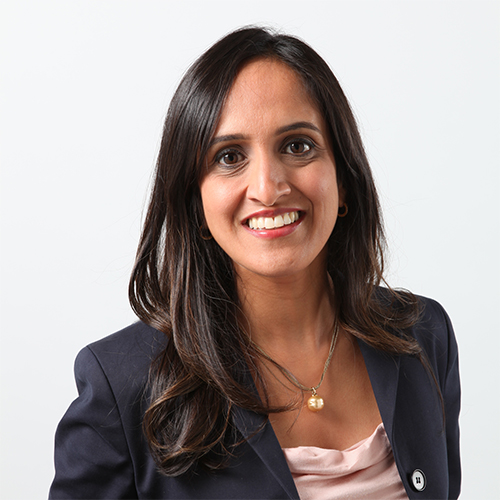Part of the Hiding in Plain Sight blog series
Written by Hansa Bhargava, Senior Medical Director at WebMD and Medscape, Author and Pediatrician
August 17, 2021
The coronavirus pandemic has dominated the news for the past year and a half. The loss of more than 600,000 Americans has created a mind-numbing drumbeat of bad news, with the latest surge only increasing the volume. Included in these anxiety-provoking updates are discussions about what to do and what not to do, debates about public health measures, and misinformation.
There is now another pandemic – that of mental health issues – which has “surged” as a result of the impacts from this devastating period. Rates of anxiety have tripled in one year, with 40% of adults reporting symptoms, along with similar increases in depression. Substance use has increased, as has suicidal ideation. Social isolation, canceled in-person school, and lost jobs are some of the issues that have contributed to the current crisis.
Mental health clinicians are in the unique position of not only experiencing the emotional strain caused by the pandemic but also treating it in their patients. What have they learned from the pandemic and how do they think we can move forward to help people with mental health challenges? We interviewed three physicians from Kaiser Permanente, a large nonprofit U.S. health care system, to discuss their thoughts: Drs. Mabel Bongmba, Greg Kellermeyer, and Maria Koshy.
Each doctor spoke about the effects of the pandemic and the variety of ways in which people experienced loss, whether through physical sickness and death or the absence of school, a job or a familiar routine. These losses triggered a range of difficult emotions, including depression and anxiety, and through this common experience, those interviewed felt that there was an opportunity to better understand how mental illness can affect everyone.
“I think we can leverage the experience of the pandemic to emphasize that mental health care is health care,” Dr. Bongmba stated. “Just like we wouldn’t feel ashamed going to a cardiologist, we shouldn’t feel that way if we’re experiencing depression, anxiety, or a substance use concern. These are all health issues that needs to be addressed.”
Anxiety about constantly changing pandemic protocols – from when and where to wear masks to whom should be vaccinated – was another common theme. Dr. Kellermeyer spoke about how he advises patients to cope with those changes. “It’s important for people to understand that this is a transition. Encouraging them to take steps in that direction and giving them hope that as they move through this transition, things will get better and become easier (is very important),” he said.
Dr. Bongmba shared a coping strategy that she often recommends: “I encourage my patients to write down all the facts they know about the things they’re worried about. [Then identify which concerns are based on facts/reality and which are not]. After we’ve done that, gotten it all out of our system, things may not seem so bad, and it might help us have a more optimistic perspective and allow us to look at everything (at face value).”
Clinicians identified several traits and habits that have made a difference for their patients, as well as for themselves, throughout the pandemic. “As someone who works in mental health, I’ve always had this privilege of seeing how resilience works to help my patients deal with stress and trauma,” Dr. Koshy stated. “With the pandemic, I have been privileged to see a similar process amongst my colleagues – their resilience has helped them weather an enormous amount of fear, anxiety, and uncertainty this past year. That’s giving me hope.”
A simple but important lesson that so many learned is the vital role of community in buffering against stress and managing through difficulties. “One of the main things [I’ve learned from this experience] is the value of community, of maintaining connection. Even with FaceTime, Zoom, and other ways we communicate, having that in-person connection is important,” said Dr. Kellermeger.
Dr. Bongmba underlined the need to take care of ourselves in the face of ongoing stress. “This experience reinforced for me the need to protect our energy and make time for self-care. Some people do that by connecting to nature, others do it by making time for their creative side. I think we can’t be our best selves if we don’t do that.”
While the pandemic brought almost incalculable challenges, it has also delivered opportunities for growth and transformative life lessons. The importance of tending to mental well-being, learning new ways to deal with change, and developing strategies for resilience, such as community and compassion, are just some of the silver linings from this past 18 months. Taking stock can help move us forward for the better.
About the Author

Hansa Bhargava is Senior Medical Director at WebMD and Medscape, Author and Pediatrician
The “Hiding in Plain Sight” blog is a series leading to the upcoming 2022 documentary Hiding in Plain Sight: Youth Mental Illness, produced and directed by Ewers Brothers Productions, executive produced by Ken Burns, and presented by WETA, the PBS flagship station in our nation’s capital.
If you are in crisis, or experiencing thoughts of suicide, please text the Crisis Text Line (text HELLO to 741741), or call the National Suicide Prevention Lifeline at 1-800-273-TALK (8255). Both services are free and available 24 hours a day, seven days a week.